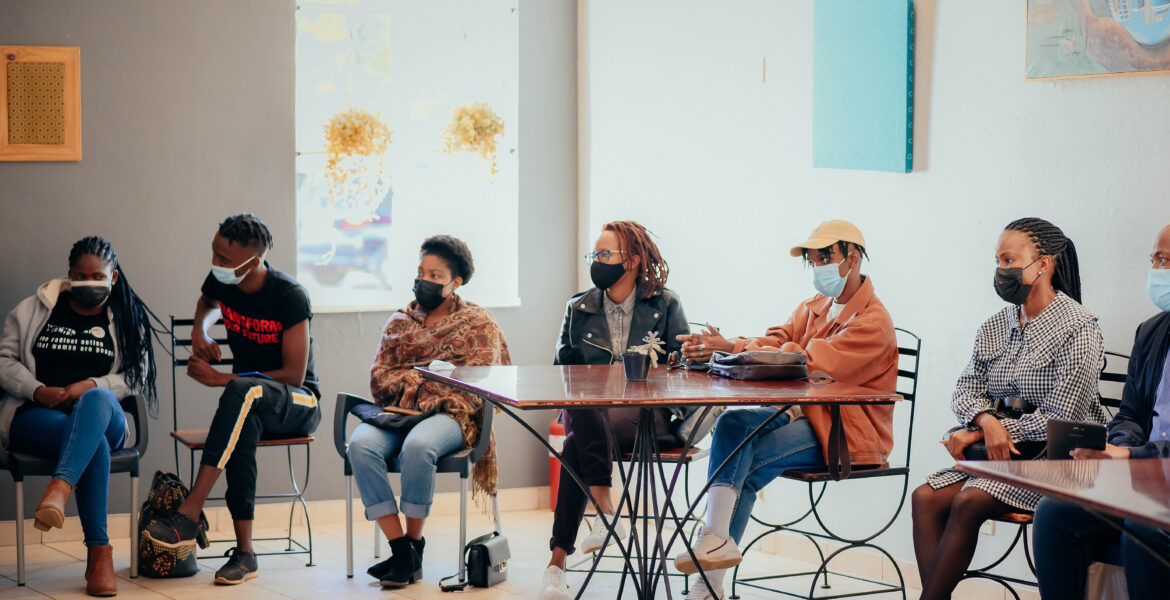- Lawyer says the law does not protect people equally
- Human Resource identified as the department responsible for creating structures of inclusion
- Discrimination inherent in the pronouns of “he” and “she”
GOSEGO MOTSUMI
While the question of whether companies are creating more inclusive workspaces for the lesbian, gay, bisexual, transgender, queer and intersex (LGBTQI+) community arises, research has shown that despite significant investment made and decades of hard work done, organiZations still need to do more.
This was revealed at another instalment of Banana Club Dialogues hosted in collaboration with the Delegation of the European Union in Botswana last weekend in Gaborone. Banana Emoji Productions is committed to identifying ways in which the ARTivism organisation can foster initiatives that provide relevant and impactful differences in under-represented communities.
“With this engagement, the goal was to understand the experiences of today’s LGBTQI+ workforce and how companies can create more inclusive workplaces,” said the curator of the event, Tanlume Enyatseng.
“Today 40% of LGBTQI+ employees are closeted at work and 75% have reported experiencing negative day-to-day workplace interactions related to their identity. I hope participants who attended walked away with some self-awareness of how they are communicating and interacting with others as a leader or a subordinate in the workplace.”
During the conversation that attracted participants from all walks of life, some queer identifying people indicated that there are no laws and policies that protect them in the workspace. In case a queer identifying individual is fired for their sexuality, there are no laws protecting them. “In case I experience offensive jokes, there are no work policies that would help us handle the situation. We find ourselves in hetero-normative spaces that require us to dim ourselves,” said someone who preferred anonymity.
Asked if there are actual rights protecting LGBTQ+ people in the workplace, attorney Bonolo Selelo said the law protects everyone but not equally. In the case of inappropriate jokes in the workspace, she said there are policies because it is harassment. “From a legal view, it is best to report in writing to Human Resource,” Selelo said. “If nothing happens maybe six months down the line, you may have a solid case of harassment.”
Human Resource was identified as the department responsible for creating structures of inclusion in the workplace. It is also the department responsible for bringing sensitivity awareness to the work space and progressive HR practices that employees can follow. “Inclusivity could also mean skin colour, job vacancies always exclude other pronouns as it is always he or her. This needs to change,” said Max Mosiakgabo from the HR field.
The dialogue was the second collaboration between Banana Emoji Productions and the Delegation of European Union in Botswana. “The European Union is honoured to collaborate with Banana Emoji once again in advocating for the LGBTQI+ community in Botswana,” said Deputy Head of Delegation, Silvia Bopp-Hamrouni.
“Our Strategy for LGBTIQ Equality proposes to integrate the fight against discrimination affecting LGBTIQ people in all EU policies and, among other actions, to promote inclusion and diversity in the workplace. We champion the use of dialogue to highlight the experiences of LGBTQI+ Batswana and create opportunities for further inclusion, and understanding.”
Banana Club creates platforms for dialogue and conversation about key issues among the youth, creatives and the predominantly queer community. The organisation has created a network of individuals and organisations that works together to challenge discourse, educate, empower and engage Batswana at large on matters affecting the youth, creatives and the LGBTQI+ community.
“We are excited to kick-start our year of dialogues,” said Enyatseng, the curator. “This year we wish to extend our voices beyond the Gaborone region by holding future sessions in other cities. This will hopefully create visibility for queer youth in locations outside of the capital city.”

